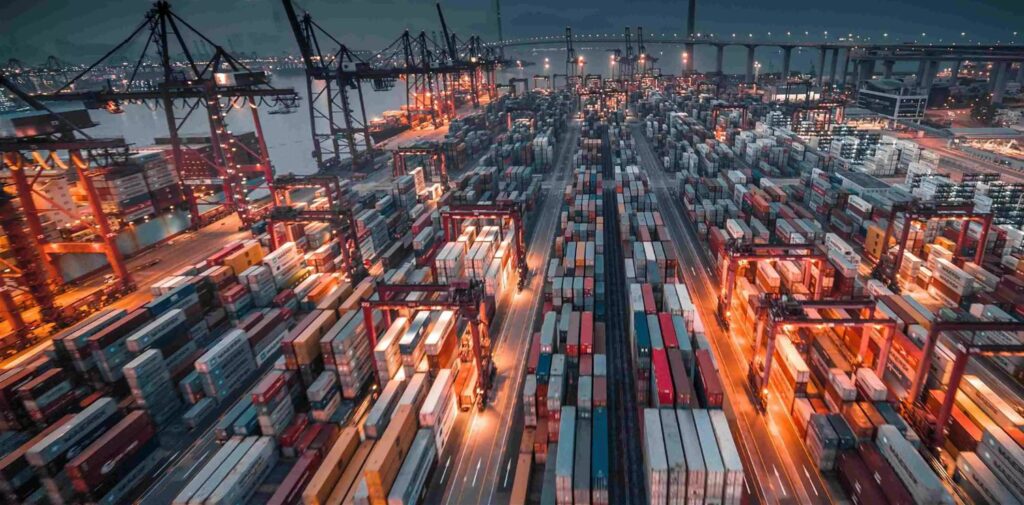India, the world’s fifth-largest economy, plays a crucial role in the development of global trade and investment partnerships. With a rich history of trade and commerce dating back thousands of years, the country continues to be an important player in international economic affairs. Over the past few decades, India has experienced rapid economic growth, and its strategic position in Asia has made it an essential hub for global trade and investment. India’s efforts to strengthen its international trade relationships and attract foreign investment have significantly contributed to its economic development and global standing.
India’s Economic Growth and Its Impact on Global Trade
India’s economic growth has been remarkable over the past few decades. With a large population, growing middle class, and robust service and manufacturing sectors, India has become a major global economic force. As the world’s largest democracy and one of the fastest-growing economies, India has attracted attention from governments, businesses, and investors worldwide.
India’s domestic market offers immense potential due to its vast consumer base. With over 1.4 billion people, the country presents a huge opportunity for companies across the globe to sell their products and services. This growing market, combined with an increasingly urbanized population, has made India an attractive destination for global trade. In addition, India has made significant strides in improving its infrastructure, digital economy, and business environment, making it easier for international companies to operate in the country.

Trade Agreements and Global Partnerships
India has been actively involved in forging trade agreements and establishing global partnerships to boost its economic growth. The country’s foreign policy aims to create strong trade ties with various regions and countries around the world. One of the key aspects of India’s trade policy is its participation in regional and international trade agreements, which help enhance its position in global trade.
India is a member of various international organizations such as the World Trade Organization (WTO), BRICS (Brazil, Russia, India, China, and South Africa), and the G20. These memberships allow India to engage in multilateral trade negotiations and influence global trade policies. Through the WTO, India has worked towards reducing trade barriers, improving market access, and promoting fair trade practices. Additionally, India has signed Free Trade Agreements (FTAs) and Comprehensive Economic Partnerships with countries like Japan, South Korea, and ASEAN (Association of Southeast Asian Nations), which further strengthen its trade relationships.
India’s trade agreements are not just about enhancing exports but also about attracting foreign investment and technology. By opening up key sectors such as agriculture, manufacturing, and services, India has made it easier for foreign companies to invest in the country and set up businesses.
India as an Investment Destination
India’s growing economy has also made it a preferred destination for foreign direct investment (FDI). The country has seen a significant increase in FDI inflows over the past few years, as global investors recognize the potential of India’s vast consumer market and skilled labor force. The government has introduced several reforms and initiatives aimed at improving the ease of doing business in the country, making it an attractive investment hub.
One of the key initiatives launched by the Indian government is the “Make in India” campaign, which aims to boost the manufacturing sector and encourage foreign companies to set up production facilities in India. This initiative has helped India become a global manufacturing hub, particularly in sectors such as automobiles, electronics, and textiles. India’s strong industrial base, coupled with its vast labor force, makes it a highly attractive destination for foreign companies looking to expand their operations.
In addition to manufacturing, India has also become a leader in the service sector, particularly in information technology (IT), business process outsourcing (BPO), and financial services. The country’s IT industry, in particular, has garnered international recognition, with companies such as Tata Consultancy Services (TCS), Infosys, and Wipro becoming global players in the technology space. The Indian government’s push for digitalization and smart infrastructure has further boosted the IT sector, making India a key player in the global technology and innovation landscape.

India’s Role in Global Supply Chains
India’s position in the global supply chain has become increasingly important in recent years. With its diverse manufacturing base and skilled labor force, the country has become an integral part of the supply chains of many multinational corporations. India’s industries, ranging from automotive to pharmaceuticals, play a vital role in meeting the global demand for products and services.
As global supply chains have become more interconnected, India has become a key player in ensuring the smooth flow of goods and services. The country’s strategic location in Asia, along with its growing infrastructure capabilities, makes it an ideal hub for companies looking to source products and raw materials. Furthermore, India’s growing digital economy has allowed for greater efficiency and innovation in global supply chains, contributing to the seamless movement of goods across borders.
India’s pharmaceutical industry is a prime example of how the country is shaping global supply chains. India is known as the “pharmacy of the world” due to its significant role in the global production of generic drugs. The country exports a large volume of affordable medicines to countries across the globe, helping to make healthcare more accessible in developing nations. The pharmaceutical industry, along with other sectors like textiles and electronics, highlights India’s growing importance in global supply chains.
India’s Focus on Sustainable Trade Practices
In recent years, there has been a growing emphasis on sustainability in global trade and investment. India has been making efforts to incorporate sustainable practices into its trade policies and investment strategies. The country recognizes the importance of environmental conservation, social responsibility, and ethical business practices in ensuring long-term economic growth.
The Indian government has implemented several initiatives to promote sustainable development, such as the National Action Plan on Climate Change (NAPCC) and the promotion of renewable energy sources like solar and wind power. By focusing on sustainable trade practices, India aims to attract investment in green technologies and eco-friendly industries.
Furthermore, India has become an active participant in global environmental agreements and initiatives. India’s commitment to reducing carbon emissions and increasing the use of renewable energy sources has made it an important player in global climate change negotiations. As sustainability becomes a key focus for businesses and governments worldwide, India’s efforts to promote responsible trade and investment practices will help strengthen its role in global economic development.

Challenges and Opportunities for India in Global Trade
While India’s role in global trade and investment partnerships continues to grow, there are still challenges that need to be addressed. One of the key challenges is the need for further reforms to improve infrastructure, reduce red tape, and simplify business regulations. While the government has made significant progress in improving the ease of doing business, there is still room for improvement.
Another challenge is India’s reliance on exports of raw materials and low-cost products. To further enhance its position in global trade, India needs to focus on increasing the export of high-value-added goods and services. This would help diversify the country’s trade portfolio and reduce its dependence on imports.
Despite these challenges, India’s growing economy, young workforce, and commitment to reform make it an attractive destination for global trade and investment. With the right policies and continued investment in infrastructure and human capital, India can strengthen its position as a global economic powerhouse.
Conclusion: Global Trade and Investment Partnerships
India’s role in developing global trade and investment partnerships is increasingly becoming more significant. Through strategic trade agreements, investment initiatives, and participation in global supply chains, India has positioned itself as an essential player in the global economy. By focusing on sustainable growth and embracing innovation, India is well on its way to becoming a key driver of global trade and investment in the coming decades. As the world continues to become more interconnected, India’s contributions to global economic development will only continue to grow, offering vast opportunities for businesses and investors worldwide.




